
Find Help
More Items From Ergsy search
-

Understanding the Impact of the UK's New Domestic Abuse Legislation
Relevance: 100%
-

What is the new Domestic Abuse Act in the UK?
Relevance: 72%
-
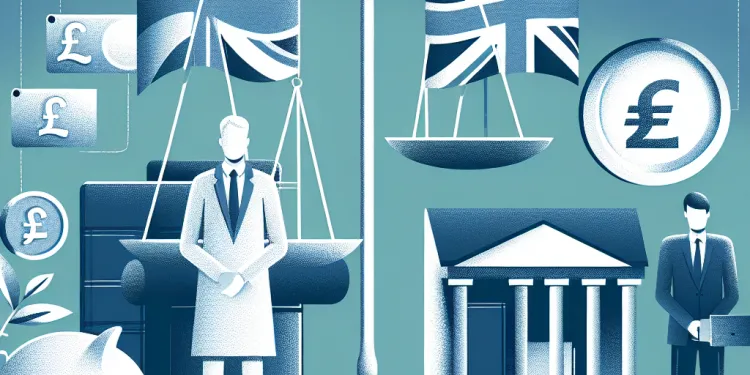
Understanding the New Domestic Abuse Laws in the UK
Relevance: 70%
-

When did the Domestic Abuse Act 2021 come into effect?
Relevance: 66%
-

Live Fear Free - Domestic Abuse
Relevance: 65%
-

Are you a male victim of domestic abuse?
Relevance: 65%
-
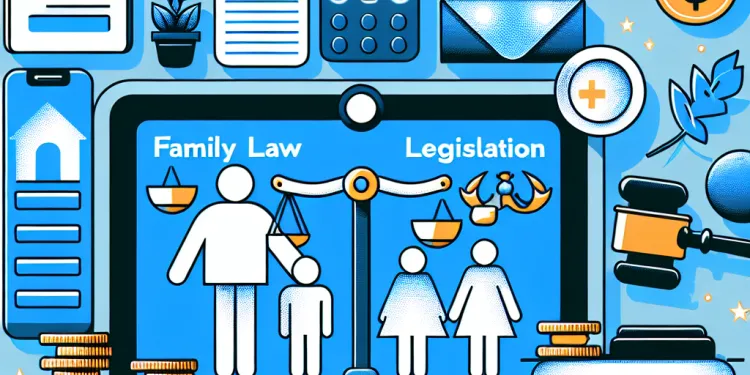
Impacts of Recent Changes to Family Law Legislation
Relevance: 65%
-

What constitutes economic abuse under the Domestic Abuse Act 2021?
Relevance: 64%
-

Live Fear Free - The Effect of Domestic Abuse on Children
Relevance: 63%
-

Who can be considered a domestic abuse perpetrator under the new law?
Relevance: 62%
-

Steps to Take When Facing Domestic Abuse
Relevance: 61%
-

How does honour based abuse impact victims?
Relevance: 43%
-

What is Honour Based Abuse?
Relevance: 42%
-
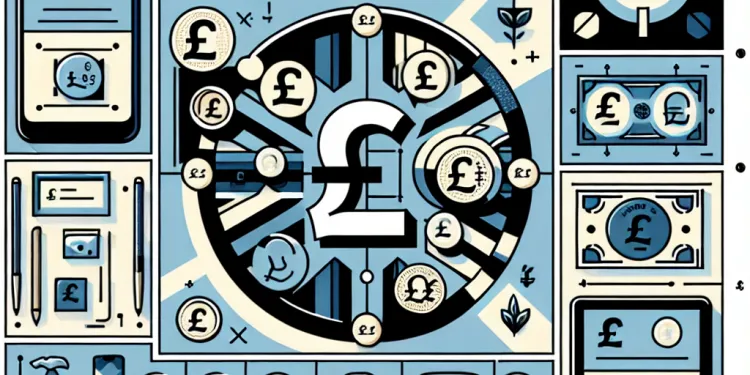
Is honour based abuse a cultural practice?
Relevance: 42%
-

How can honour based abuse be prevented?
Relevance: 40%
-

New Asylum Seekers Legislation Sparks Nationwide Debate
Relevance: 38%
-

Three-year limit for child sexual abuse claims to be removed
Relevance: 37%
-

6 Signs of Emotional Abuse and Neglect
Relevance: 37%
-

Understanding Parental Rights in Light of New UK Child Protection Legislation
Relevance: 36%
-

When Kids Abuse Kids
Relevance: 36%
-

7 Warning Signs of Emotional Abuse
Relevance: 36%
-
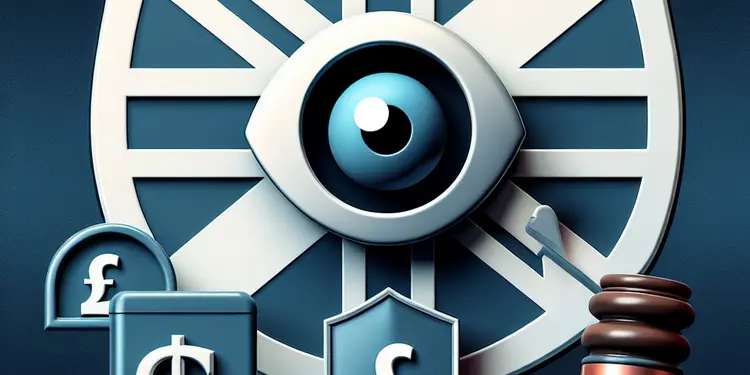
Controversy Surrounds New Surveillance Legislation as Privacy Groups Voice Concerns
Relevance: 36%
-

What are the new protocols for domestic violence cases in family court in 2026?
Relevance: 34%
-

Who can be a victim of honour based abuse?
Relevance: 34%
-

Can men be perpetrators of honour based abuse?
Relevance: 33%
-

How To Prove Narcissistic Abuse In Family Court UK
Relevance: 33%
-

How is the Attorney General involved in the legislative process in the UK?
Relevance: 33%
-
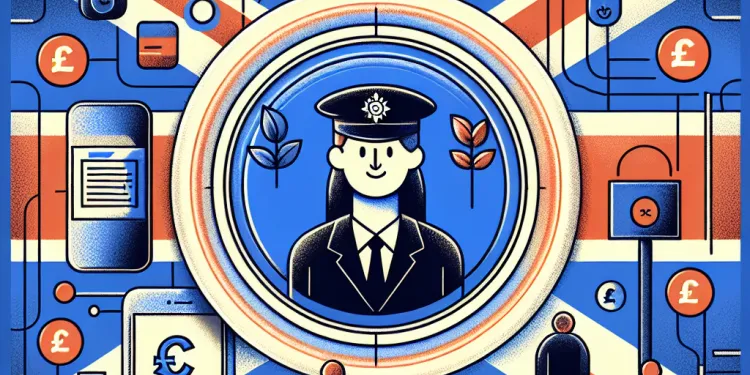
What are the signs of honour based abuse?
Relevance: 32%
-

What forms can honour based abuse take?
Relevance: 30%
-

Is it necessary to have travel insurance for domestic trips?
Relevance: 30%
-

8 Signs You Are Dealing with Narcissistic Abuse
Relevance: 30%
-

5 Signs You've Been Mentally Abused
Relevance: 29%
-

How will the cuts impact landlords?
Relevance: 23%
-

Has the government introduced any new legislation to address this issue?
Relevance: 23%
-

What is the impact of the 2026 changes on grandparent visitation rights?
Relevance: 22%
-

Children Act 1989 section 20 - Legislation
Relevance: 21%
-

How does the reform impact renting costs?
Relevance: 21%
-

Impact of Cost of Living on UK Communities
Relevance: 20%
-

What are women's prisons like in the UK?
Relevance: 19%
-

Is there an impact on short-term rentals?
Relevance: 19%
Understanding the Impact of the UK's New Domestic Abuse Legislation
Introduction to the New Legislation
The UK’s Domestic Abuse Act 2021 marks a significant shift in how domestic abuse is approached and managed across England and Wales. This landmark legislation aims to provide better protection for victims, hold perpetrators to account, and ensure that agencies respond effectively to all forms of domestic abuse. The new law broadens the definition of domestic abuse beyond physical violence to include emotional, coercive, or controlling behavior, and economic abuse. These changes recognize the complex and multifaceted nature of domestic abuse, ensuring that more victims can seek help and gain access to justice.
Main Provisions and Changes
One of the key provisions of the new act is the creation of the Domestic Abuse Protection Notices (DAPNs) and Domestic Abuse Protection Orders (DAPOs). These tools provide immediate protection for victims by allowing the police and courts to impose restrictions on perpetrators. Additionally, the act introduces the concept of children as victims in their own right if they see, hear, or otherwise experience the effects of abuse. This change puts an end to the notion that exposure to domestic abuse is merely secondary trauma, acknowledging its direct impact on children’s wellbeing and development.
Support and Resources for Victims
The Domestic Abuse Act 2021 also emphasizes the importance of support services. It legally requires local authorities to provide safe accommodations and essential support for victims and their children. These services, which may include counseling, financial advice, and legal assistance, aim to help victims rebuild their lives. Moreover, the act commits to establishing a Commissioner for Domestic Abuse to monitor the response to domestic abuse, ensuring that standards and practices across different agencies are consistent and effective.
Implications for Law Enforcement and Judicial Systems
The new legislation has significant implications for law enforcement and the judicial system. It enhances police powers and provides clearer guidance on handling domestic abuse cases, ensuring a robust and victim-centered approach. For the judiciary, it mandates that domestic abuse proceedings be handled with a trauma-informed approach, recognizing the complexities victims face. This comprehensive framework aims to improve outcomes and ensure that the justice system is accessible and responsive to the needs of domestic abuse survivors.
Conclusion
The UK’s Domestic Abuse Act 2021 is a transformative piece of legislation that represents a proactive approach to tackling domestic abuse. By broadening the definition of abuse, increasing protections for victims, providing necessary resources, and ensuring a cohesive response from agencies, the act offers a stronger framework for addressing domestic abuse. This progressive legal approach not only helps victims find justice and safety but also works towards eradicating the wider societal impact of domestic abuse within the United Kingdom.
Understanding What the UK's New Domestic Abuse Law Means
What is the New Law About?
The UK's Domestic Abuse Act 2021 is a new law that changes how we deal with domestic abuse in England and Wales. It wants to help victims, make sure those who hurt others are punished, and ensure everyone knows how to handle abuse better. The law now says that domestic abuse is not just about hitting or physical harm. It includes emotional harm, being controlled or forced to do things, and having money taken away. This means more people can get the help and protection they need.
What Are the Main Changes?
The law introduces new tools called Domestic Abuse Protection Notices (DAPNs) and Domestic Abuse Protection Orders (DAPOs). They help protect victims quickly by letting the police and courts stop abusers. Also, the law now sees children as victims too if they see or hear abuse at home. This is important because kids can be hurt even if the abuse is not aimed at them.
Help and Support for Victims
The law says local councils must provide safe places and support for victims and their children. This support can include talking to someone about your feelings (counseling), advice on money, and help with legal matters. There will also be someone in charge, called the Commissioner for Domestic Abuse, to make sure everyone is doing what they should to help victims.
What This Means for Police and Courts
The new law gives the police more power to help victims and make sure they know what to do in domestic abuse cases. Courts need to remember how hard it is for victims when they handle these cases. This is so victims feel safe and understood when they ask for help. The aim is for victims to get the right help in court.
Conclusion
The UK's Domestic Abuse Act 2021 is a new and important law to stop domestic abuse. By saying what abuse is, helping victims, and making sure help is available, the law wants to stop abuse from happening. This means victims can get the safety and justice they need, and it helps stop abuse from affecting everyone in society.
Frequently Asked Questions
What is the new Domestic Abuse Act?
The new Domestic Abuse Act is a comprehensive piece of legislation aimed at enhancing protection for victims of domestic abuse in the UK. It provides a more robust legal framework to combat domestic abuse and includes measures to improve the response of law enforcement, health, and social care professionals.
When did the Domestic Abuse Act come into force?
The Domestic Abuse Act received Royal Assent on April 29, 2021. Different sections of the Act have since been implemented gradually.
What key protections does the Domestic Abuse Act provide?
The Act includes measures such as the introduction of Domestic Abuse Protection Notices (DAPNs) and Domestic Abuse Protection Orders (DAPOs), recognition of children as victims of domestic abuse, and the prohibition of cross-examination of victims by their abusers in family courts.
How does the Act define domestic abuse?
The Act defines domestic abuse as abusive behavior between individuals aged 16 or over who are personally connected. This includes physical violence, emotional abuse, coercive control, economic abuse, and any other form of controlling or manipulative behavior.
Who can be considered a victim under the Domestic Abuse Act?
Any person aged 16 or older who suffers from abusive behavior perpetrated by someone they are personally connected to can be considered a victim under this Act.
What is a Domestic Abuse Protection Notice (DAPN)?
A DAPN is an immediate protective measure issued by the police to provide immediate protection for victims of domestic abuse. It can require the abuser to leave the shared home and stay away from the victim for a specified period.
What is a Domestic Abuse Protection Order (DAPO)?
A DAPO is a longer-term protective order that can impose a range of conditions on the abuser, such as prohibiting contact with the victim or requiring the abuser to attend perpetrator programs.
How does the Act address children affected by domestic abuse?
The Act recognizes children who see, hear, or experience the effects of domestic abuse as victims in their own right, ensuring they receive appropriate support and protection.
Can abusers cross-examine their victims in family court under this Act?
No, the Act prohibits the cross-examination of victims by their abusers in family courts to protect victims from further trauma and intimidation.
What penalties does the Act impose for breach of protection orders?
Breaching a Domestic Abuse Protection Order (DAPO) can lead to criminal charges and penalties, including imprisonment, fines, or both.
Does the Domestic Abuse Act address economic abuse?
Yes, the Act includes provisions that recognize economic abuse as a form of domestic abuse, addressing situations where abusers control a victim's economic resources and restrict their financial independence.
How does the Act support survivors of domestic abuse?
The Act mandates the creation of a Domestic Abuse Commissioner role to oversee and monitor responses to domestic abuse, ensures local authorities provide accommodation-based support, and improves the overall support infrastructure for survivors.
What role does the Domestic Abuse Commissioner play?
The Domestic Abuse Commissioner is an independent role tasked with monitoring the response to domestic abuse across different sectors, promoting best practices, and holding statutory agencies accountable for their actions to protect victims and survivors.
How does the Act impact the police response to domestic abuse?
The Act strengthens police powers, including the ability to issue immediate Domestic Abuse Protection Notices and apply for longer-term Domestic Abuse Protection Orders to enhance victim safety and hold abusers accountable.
What support is available for individuals worried about domestic abuse?
Individuals can access a range of support services, including helplines, refuges, counseling, and legal advice. They can also contact local authorities or organizations such as Women's Aid and Refuge for support and resources.
What is the new Domestic Abuse Law?
The Domestic Abuse Law is a set of rules to keep people safe at home. It helps protect people from harm and makes sure everyone is treated nicely and fairly.
This law is like a shield. It makes it easier to stop and punish bad behavior. It also helps people get support when they need it.
If someone is in trouble, they can use this law to get help. There are people and places that can give support, like family, friends, or special helpers. Always tell a trusted adult if you need help.
The new Domestic Abuse Act is a law that helps protect people who face harm at home in the UK. It makes rules stronger to stop this harm. The law also helps the police, doctors, and social workers do a better job to help those in need.
When did the Domestic Abuse Act start working?
The Domestic Abuse Act became a law on April 29, 2021. Different parts of the law have started to work bit by bit since then.
What does the Domestic Abuse Act do to keep people safe?
The law has new rules to keep people safe from domestic abuse. It has some important parts:
- There are special notices and orders to protect people. They are called Domestic Abuse Protection Notices (DAPNs) and Domestic Abuse Protection Orders (DAPOs).
- Children who see or hear domestic abuse are also seen as victims and get help.
- In family courts, if someone hurt you, they are not allowed to ask you questions. This keeps you safe.
Tools like picture boards or having someone to help explain things can make this easier to understand.
What is domestic abuse?
Domestic abuse is when someone is hurt or scared at home by a family member, a partner, or someone they live with.
The Act says that domestic abuse is when someone older than 16 acts mean to someone they know. This can be hitting, being mean with words, controlling what someone does, controlling their money, or any other bad behavior.
Tools and Tips:
- Use pictures to help understand the words.
- Read the text aloud for better understanding.
- Ask someone you trust to explain any hard parts.
Who is a victim in the Domestic Abuse Act?
If someone hurts or scares you at home, you might be a victim.
The Domestic Abuse Act is a rule that helps protect people who are hurt or scared at home.
Here are some tools to help:
- Talk to someone you trust: This could be a family member, friend, or teacher.
- Call for help: There are phone numbers you can call to talk to someone who can help you.
- Write down what happens: Keep a diary of what is happening to you.
If you are 16 years old or older and someone you know is being mean or hurtful to you, you can get help because you are being treated badly.
What is a Domestic Abuse Protection Notice (DAPN)?
A Domestic Abuse Protection Notice, or DAPN, is a paper from the police. It helps keep someone safe from harm at home.
The paper tells a person who is hurting someone to stay away. This means they cannot see or talk to the person they hurt.
If you are in danger, you can talk to a trusted adult who can help. There are tools like pictures or videos that can explain what a DAPN is.
A DAPN is a special rule the police can use to keep someone safe from harm at home. It helps people right away. It can make the person hurting someone leave the house and stay away for a certain time.
What is a Domestic Abuse Protection Order (DAPO)?
A Domestic Abuse Protection Order, or DAPO, is a rule from a court. It helps keep people safe from someone who is hurting them at home.
This order tells the person who is being mean or hurtful to stop. They must not bother or hurt the person again. Sometimes, the order can make them leave the home.
To help understand the DAPO, you can:
- Ask a trusted adult or friend to explain it to you.
- Use picture cards to see what it means.
- Watch a simple video that explains the order.
A DAPO is a safety order that lasts a long time. It can set rules for the person who caused harm. These rules might say the person cannot talk to or go near the victim. The person might also have to join a program to help them change.
How does the Law help children hurt by family violence?
This is about how the Law helps kids when there is hurt and fighting at home. The Law wants to protect kids and make sure they are safe.
Tools and techniques that can help kids understand:
- Pictures and Simple Stories: Show what happens when the Law helps kids.
- Talking with Someone You Trust: Kids can talk to a teacher or a trusted adult about their feelings.
- Calming Activities: Doing things like drawing or playing to feel better.
The law says that kids who see, hear, or feel domestic abuse are also victims. It makes sure they get the right help and protection.
Can a person who hurts someone ask them questions in family court with this law?
When people go to family court, sometimes the person who hurt someone might want to ask them questions. This is called "cross-examine" in court. But with this new law, the court wants to make sure everyone feels safe.
The court will decide if it's okay for the person who hurt someone to ask questions. If not, the court will find a safe way to ask questions, like using a lawyer.
It's important for everyone to feel safe when they talk in court. Tools like having a person to help or being in a room with cameras can help.
No, the law says that people who hurt others can't ask their victims questions in family courts. This is to help keep victims safe and not make them feel scared again.
What happens if someone breaks a protection order?
If someone breaks a Domestic Abuse Protection Order (DAPO), they can get into big trouble. They might have to go to jail, pay money as a fine, or both.
Does the Domestic Abuse Act help with money problems caused by abuse?
The Domestic Abuse Act helps people who are hurt by others at home.
This law also talks about money problems. It helps people who are controlled through money, like when someone else takes all their money or does not let them have any.
If you or someone you know is having money problems because of abuse, you can get help. Talk to someone you trust, like a friend, a teacher, or a family member.
There are also places you can call or visit for help. They can tell you what to do and how to stay safe. Remember, you are not alone.
Yes, the law says that economic abuse is a kind of domestic abuse. This means when someone takes control of another person's money or things and stops them from being independent.
How does the Act help people who have been hurt at home?
This new law is here to help people who have been hurt by someone they live with. It makes sure they are safe and can get the help they need.
For example, the law:
- Makes sure people who are hurt can get help and support.
- Tells police and others to listen and help quickly.
- Makes plans to keep people safe from those who hurt them.
If you need help reading or understanding, ask a friend or someone you trust to help you. Try using pictures, simple words, and clear steps to make it easier.
The new law says we need a person called a "Domestic Abuse Commissioner." This person will check how well we help people who face domestic abuse. The law also says that local councils must give safe places to stay for people who are hurt at home. It makes sure we are better at helping people who need it.
What does the Domestic Abuse Commissioner do?
The Domestic Abuse Commissioner helps people who are hurt at home.
They make sure everyone knows that hurting people is not okay.
The Commissioner works with the police and helps make laws better to keep people safe.
If you need help, you can talk to someone or call a special phone number.
Pictures, short videos, or speaking to someone can help you understand more.
The Domestic Abuse Commissioner is a person who helps keep people safe from domestic abuse. They make sure that everyone is doing their best to help victims. They also check to see if the rules are being followed by the people who should be protecting others.
What does the new law change about how police help with domestic abuse?
The new law gives police more power. They can now send out quick notices to help protect people from domestic abuse. Police can also ask for special orders to keep people safe for a longer time. This helps to make victims safer and makes sure abusers are punished.
If reading is hard, you can use tools like text-to-speech, which reads the text out loud. You can also ask someone you trust to read it with you. This can help make the information clearer.
How can people get help if they are scared about home violence?
If you are scared or hurt at home, there are people who can help you.
Here are some ways to get help:
- Call someone you trust, like a friend or family member.
- Phone a helpline for people who need help. They can listen and give advice.
- Talk to a teacher or counselor at school if you feel safe doing so.
Remember, it is okay to ask for help. You are not alone.
People can get help in different ways. They can call helplines for support, stay at safe houses called refuges, talk to someone for advice, or get legal help. They can also ask for help from places like Women’s Aid and Refuge or from local community groups.
Useful Links
This website offers general information and is not a substitute for professional advice.
Always seek guidance from qualified professionals.
If you have any medical concerns or need urgent help, contact a healthcare professional or emergency services immediately.
Some of this content was generated with AI assistance. We’ve done our best to keep it accurate, helpful, and human-friendly.
- Ergsy carfully checks the information in the videos we provide here.
- Videos shown by Youtube after a video has completed, have NOT been reviewed by ERGSY.
- To view, click the arrow in centre of video.
- Most of the videos you find here will have subtitles and/or closed captions available.
- You may need to turn these on, and choose your preferred language.
- Go to the video you'd like to watch.
- If closed captions (CC) are available, settings will be visible on the bottom right of the video player.
- To turn on Captions, click settings .
- To turn off Captions, click settings again.
More Items From Ergsy search
-

Understanding the Impact of the UK's New Domestic Abuse Legislation
Relevance: 100%
-

What is the new Domestic Abuse Act in the UK?
Relevance: 72%
-

Understanding the New Domestic Abuse Laws in the UK
Relevance: 70%
-

When did the Domestic Abuse Act 2021 come into effect?
Relevance: 66%
-

Live Fear Free - Domestic Abuse
Relevance: 65%
-

Are you a male victim of domestic abuse?
Relevance: 65%
-

Impacts of Recent Changes to Family Law Legislation
Relevance: 65%
-

What constitutes economic abuse under the Domestic Abuse Act 2021?
Relevance: 64%
-

Live Fear Free - The Effect of Domestic Abuse on Children
Relevance: 63%
-

Who can be considered a domestic abuse perpetrator under the new law?
Relevance: 62%
-

Steps to Take When Facing Domestic Abuse
Relevance: 61%
-

How does honour based abuse impact victims?
Relevance: 43%
-

What is Honour Based Abuse?
Relevance: 42%
-

Is honour based abuse a cultural practice?
Relevance: 42%
-

How can honour based abuse be prevented?
Relevance: 40%
-

New Asylum Seekers Legislation Sparks Nationwide Debate
Relevance: 38%
-

Three-year limit for child sexual abuse claims to be removed
Relevance: 37%
-

6 Signs of Emotional Abuse and Neglect
Relevance: 37%
-

Understanding Parental Rights in Light of New UK Child Protection Legislation
Relevance: 36%
-

When Kids Abuse Kids
Relevance: 36%
-

7 Warning Signs of Emotional Abuse
Relevance: 36%
-

Controversy Surrounds New Surveillance Legislation as Privacy Groups Voice Concerns
Relevance: 36%
-

What are the new protocols for domestic violence cases in family court in 2026?
Relevance: 34%
-

Who can be a victim of honour based abuse?
Relevance: 34%
-

Can men be perpetrators of honour based abuse?
Relevance: 33%
-

How To Prove Narcissistic Abuse In Family Court UK
Relevance: 33%
-

How is the Attorney General involved in the legislative process in the UK?
Relevance: 33%
-

What are the signs of honour based abuse?
Relevance: 32%
-

What forms can honour based abuse take?
Relevance: 30%
-

Is it necessary to have travel insurance for domestic trips?
Relevance: 30%
-

8 Signs You Are Dealing with Narcissistic Abuse
Relevance: 30%
-

5 Signs You've Been Mentally Abused
Relevance: 29%
-

How will the cuts impact landlords?
Relevance: 23%
-

Has the government introduced any new legislation to address this issue?
Relevance: 23%
-

What is the impact of the 2026 changes on grandparent visitation rights?
Relevance: 22%
-

Children Act 1989 section 20 - Legislation
Relevance: 21%
-

How does the reform impact renting costs?
Relevance: 21%
-

Impact of Cost of Living on UK Communities
Relevance: 20%
-

What are women's prisons like in the UK?
Relevance: 19%
-

Is there an impact on short-term rentals?
Relevance: 19%


